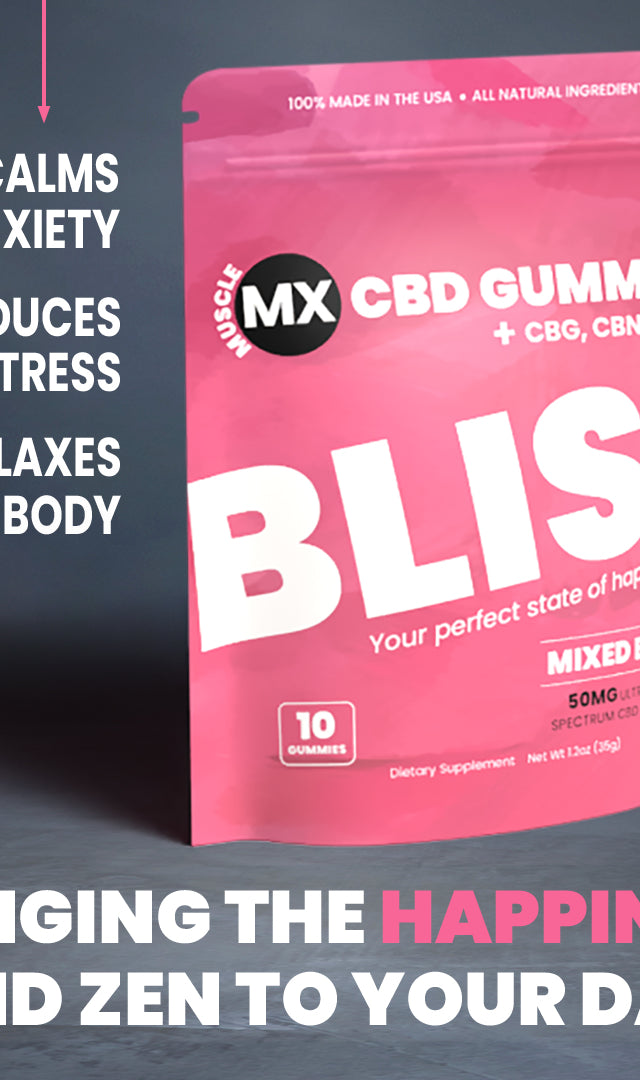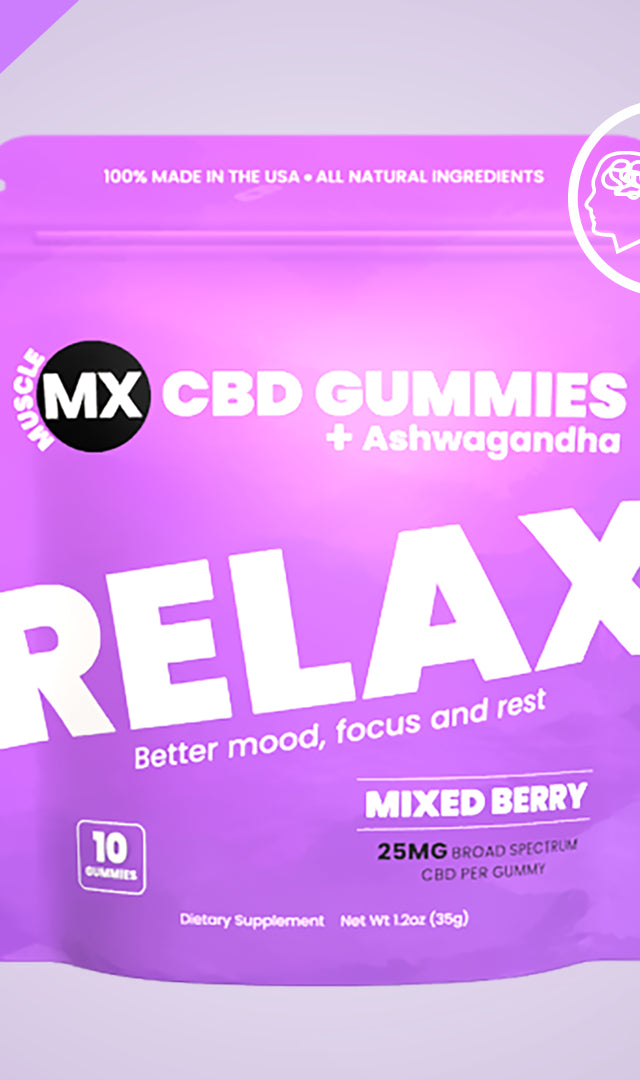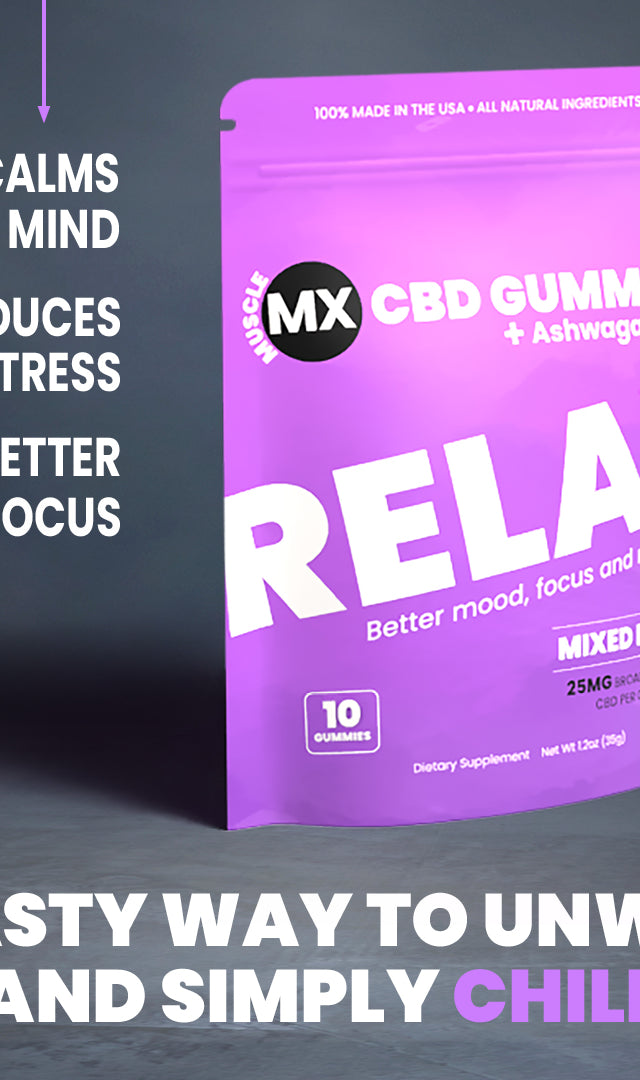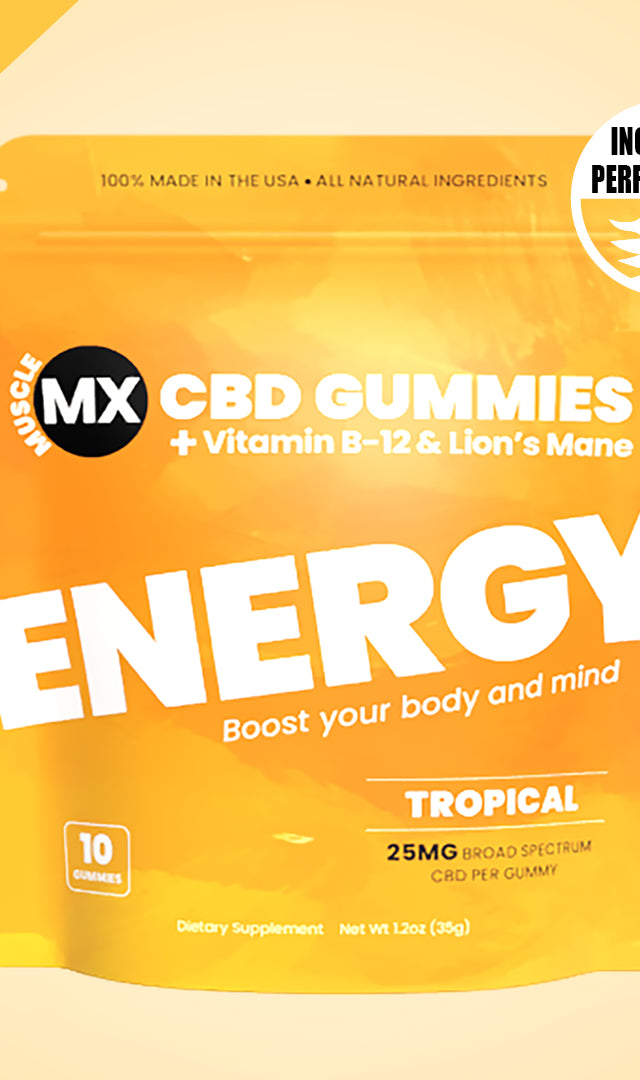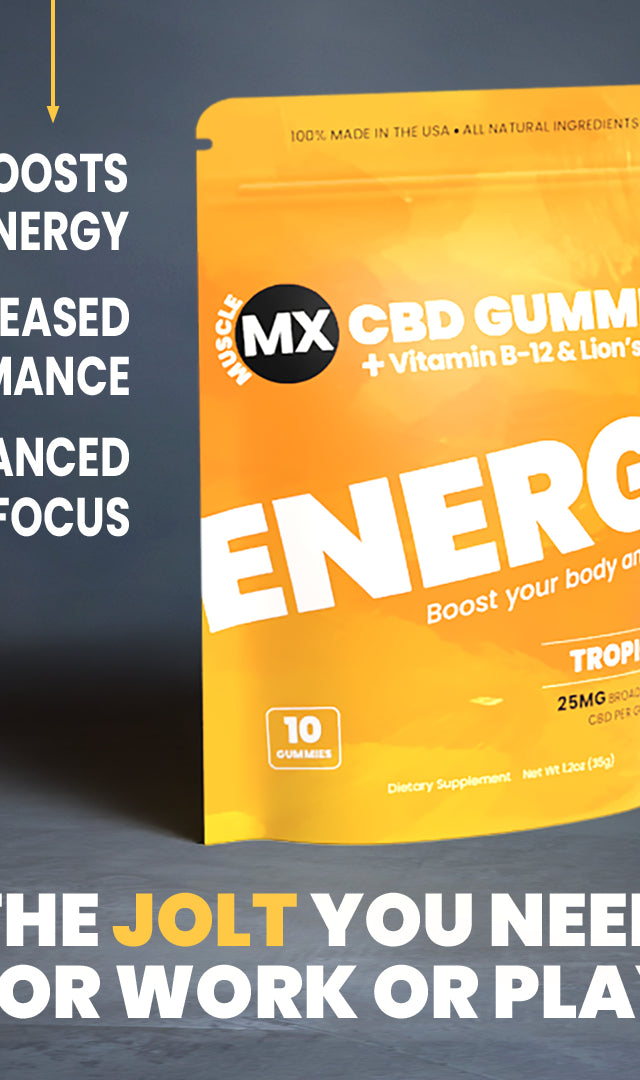8 Best Supplements for Stress That Actually Work (Natural Options)
Stress — it affects nearly half of Americans, creating both emotional and physical symptoms like mood swings and tense muscles. You know the feeling. Those moments when life's pressures leave you feeling overwhelmed, when even simple tasks feel harder than they should.
Finding the right supplements for stress relief doesn't need to add more tension to your day. Natural options like ashwagandha have shown remarkable results in clinical research, with studies confirming it can significantly reduce stress and anxiety levels. One study found that eight weeks of ashwagandha supplementation not only eased stress but also improved participants' overall quality of life.
Ashwagandha isn't alone in this fight against stress. Vitamins D, C, and B complex can help improve mood and decrease stress levels, particularly for those with deficiencies. Magnesium deserves special attention since high stress can actually deplete your body's reserves, creating a cycle where stress makes you more susceptible to stress.
Understanding these natural stress-relief options is the first step toward finding a solution that works for your unique situation. Your body has remarkable systems for managing stress, and the right supplements can support these natural processes.
Let's explore eight science-backed stress relief supplements that actually work, their benefits, proper dosages, and how to incorporate them into your stress management routine. We'll discover which natural options might be the right fit for your wellness journey.
Ashwagandha (Withania somnifera) stands out as one of the most well-researched herbs for stress management. This small, woody plant native to India and Africa has been a cornerstone of Ayurvedic medicine for centuries, earning recognition for its remarkable adaptogenic properties.
What Makes Ashwagandha So Effective?
Research reveals that ashwagandha offers multiple benefits that extend far beyond simple stress reduction. Studies show it can significantly improve overall anxiety levels, with one meta-analysis revealing a 41% reduction in anxiety scores compared to 24% with placebo. Clinical trials have also documented improvements in sleep quality, particularly beneficial for those struggling with insomnia.
The benefits reach into hormonal balance as well. Research indicates ashwagandha may increase testosterone levels in men, potentially supporting reproductive health. Some studies suggest it can enhance memory, focus, and cognitive performance in adults experiencing high stress.
How Ashwagandha Supports Your Body's Stress Response
Your body's stress response system is complex, and ashwagandha works by modulating this intricate network. Clinical research confirms it reduces cortisol levels — our primary stress hormone. Multiple studies demonstrate that ashwagandha directly moderates the hypothalamic-pituitary-adrenal (HPA) axis, essentially calming the biological mechanisms that trigger stress responses.
Consider this: participants taking ashwagandha extract experienced significantly lower morning cortisol levels compared to those taking placebo. This helped reduce both psychological and physical manifestations of stress. The active compounds responsible for these effects are withanolides, which possess natural anti-inflammatory properties.
Understanding Dosage and Safety
Clinical research shows effective dosages typically range from 250-600 mg daily, with studies showing greater benefits at doses of 500-600 mg daily than lower amounts. For treating generalized anxiety disorder specifically, a daily dose of 300-600 mg of ashwagandha root extract (standardized to 5% withanolides) is provisionally recommended by the World Federation of Societies of Biological Psychiatry.
Ashwagandha is generally well-tolerated for periods of up to 3 months. However, certain considerations are important:
- Not recommended during pregnancy or breastfeeding
- May interact with medications for thyroid conditions
- Should be avoided by those with autoimmune diseases like lupus or rheumatoid arthritis
- Not advised for people with type 1 diabetes or Hashimoto's thyroiditis
Potential side effects, while uncommon, may include digestive discomfort, drowsiness, or nausea.
When Ashwagandha Works Best
Based on the available research, ashwagandha proves particularly valuable for:
- Individuals experiencing chronic stress and anxiety, especially where standard measurements confirm elevated stress levels
- Those suffering from stress-related sleep disturbances
- People seeking natural support for stress without sedative effects
- Adults looking to maintain healthy cortisol levels during periods of intense pressure
- A task force created by the World Federation of Societies of Biological Psychiatry provisionally recommends ashwagandha specifically for treating generalized anxiety disorder, though they note more research would strengthen this recommendation.
Remember, consistency matters more than immediate effects — most studies showing significant benefits administered ashwagandha for at least 6-8 weeks. Your stress management journey is unique, and ashwagandha can be a valuable tool in supporting your body's natural ability to handle life's challenges.
CBD gummies represent a modern approach to stress management, offering something different from traditional herbal remedies. These pre-measured edibles deliver cannabidiol, a non-psychoactive compound from the cannabis plant, in a convenient format that's gained attention for good reason.
What Are the Key Benefits of CBD Gummies?
The appeal of CBD gummies goes beyond their pleasant taste. They provide precise, consistent dosing — something that's particularly valuable if you're new to CBD supplementation. No guessing, no measuring, just a reliable amount each time.
Research supports their potential effectiveness. One study found that participants reported enhanced ability to perform daily functions alongside reduced anxiety symptoms. Perhaps most compelling: 78.1% of participants experienced improvements in anxiety symptoms after just two months of CBD treatment.
Clinical evidence suggests CBD may help with various anxiety conditions, including generalized anxiety, seasonal affective disorder, and post-traumatic stress disorder. This makes CBD gummies appealing for those seeking stress management without pharmaceutical interventions.
How CBD Gummies Work for Stress Relief
CBD interacts with your endocannabinoid system — a network of neurotransmitters throughout the body that influences numerous health benefits. Unlike THC, CBD won't make you feel "high". Instead, it appears to modulate anxiety by affecting serotonin receptors in the brain.
The research is encouraging. CBD may promote relaxation and help reduce anxious thoughts, potentially making stressful situations more manageable. A 2020 study found that CBD therapy helped improve both depression and anxiety symptoms while enhancing quality of life after just three weeks.
Dosage and Safety Considerations
For stress management, 10–50 mg of CBD is often recommended. First-time users should start with a lower dose — around 5-10 mg — and gradually increase until finding what works best.
CBD gummies typically take effect within 30 minutes to 2 hours after consumption. Tracking your doses and responses can help you identify your ideal amount.
CBD is generally well-tolerated even at doses exceeding 1500 mg daily. Potential side effects may include:
- Drowsiness or sleepiness
- Digestive issues (diarrhea, nausea)
- Changes in appetite
- Irritability
More serious concerns might include liver damage or drug interactions. If you're taking medications, consulting a healthcare provider before starting CBD is important.
When CBD Gummies Work Best
CBD gummies excel at helping "take the edge off" during periods of elevated stress. They're particularly useful for daily stress management, with 70% of participants in one study reporting good to excellent satisfaction with CBD treatment.
The discrete, pre-measured nature makes them practical for on-the-go stress management. Those experiencing sleep disruptions related to stress might benefit from higher doses (50+ mg) taken before bedtime.
CBD works best as part of a broader approach to stress management rather than a standalone solution. Full-spectrum and broad-spectrum CBD gummies may offer enhanced benefits through the "entourage effect," where multiple cannabis compounds work together.

Image Source: MDPI
Creatine for stress relief? It might sound surprising, but this compound traditionally known for muscle building has emerged as a remarkable ally for brain function and mental resilience. This naturally occurring substance, found in seafood and red meat, plays a crucial role in energy metabolism within both muscle and brain tissue.
Key Benefits of Creatine Gummies
Creatine gummies offer cognitive advantages that extend well beyond their convenient delivery format. Research shows they may enhance short-term memory and intelligence/reasoning abilities. These benefits appear most pronounced in specific populations, with studies showing notable improvements in cognitive performance among older adults.
Even a single dose of creatine can yield measurable cognitive benefits. One study found that participants experienced significant improvements in working memory (10.3%), processing speed (17.7%), and performance on language tasks (29.1%) after just one administration.
What makes creatine particularly appealing is its dual-purpose nature — it simultaneously supports muscle performance and recovery while enhancing mental function, making it valuable for both physical and mental stress. Its well-established safety profile makes it accessible for most individuals seeking stress relief.
How Creatine Gummies Support Brain and Mood
Your brain might represent only 2% of your body weight, but it consumes approximately 20% of your body's energy. This enormous metabolic demand explains why creatine's energy-enhancing properties benefit brain function so dramatically.
Creatine works by immediately supplying energy to tissues with increased demands. In the brain, this translates to improved cognitive performance during challenging tasks. Studies reveal that creatine supplementation elevates brain creatine levels, subsequently enhancing performance on cognitive tasks like recognition memory.
Mental fatigue often accompanies stress, yet research demonstrates that creatine can reduce this fatigue by 8%. This effect proves particularly valuable during periods of sleep deprivation or intense mental exertion. One study found that creatine supplementation prevented the metabolic alterations and cognitive deterioration typically associated with sleep deprivation.
Dosage and Safety of Creatine Gummies
For cognitive benefits, a daily dose of 3-5 grams of creatine appears effective for most people. Higher doses (up to 20g) have been studied for acute cognitive enhancement, though these aren't recommended for regular use due to potential kidney strain.
Creatine has decades of safety data confirming it's well-tolerated by most individuals. Side effects are generally mild, including:
- Slight weight gain (typically as lean body mass)
- Potential bloating or stomach discomfort (usually avoided by starting with lower doses)
- Water retention in some individuals
Remember, creatine is considered safe for up to five years of continuous use. Those with pre-existing kidney conditions should consult healthcare providers before supplementation.
Best Use Cases for Creatine Gummies
Creatine gummies prove most beneficial for specific stress-related scenarios. Research indicates they appear especially effective for:
- Older adults experiencing age-related cognitive decline
- Individuals suffering from sleep deprivation who need mental performance
- People undergoing significant mental fatigue from demanding cognitive tasks
- Vegans and vegetarians, who typically have lower creatine levels due to dietary patterns
Studies show creatine may mitigate cognitive impairment caused by sleep loss. This makes it valuable for healthcare professionals, first responders, and others whose work demands mental sharpness despite insufficient rest.
For maximum effectiveness, consistent daily supplementation yields better results than occasional use, as regular intake maintains optimal creatine levels in both muscle and brain tissue.

Image Source: MDPI
Have you ever wondered why stress seems to create a cycle where you feel more stressed? Magnesium might hold part of the answer. As an essential mineral involved in over 300 biochemical reactions, magnesium offers powerful stress-relieving properties through its ability to regulate neurotransmitters and hormones. This abundant mineral plays a crucial role in your body's stress response system, making it a cornerstone supplement for anxiety management.
What Are the Key Benefits of Magnesium?
Magnesium delivers multiple benefits that extend far beyond stress reduction. It helps maintain healthy cardiovascular function and blood pressure levels. Clinical evidence suggests magnesium supplementation can improve overall brain function by regulating neurotransmitters that send messages throughout your brain and body.
The mineral also contributes significantly to better sleep quality through its regulation of the neurotransmitter GABA. If you've been dealing with muscle tension and cramping — common physical signs of stress — magnesium can help address these issues too. You might also notice improved mood regulation and decreased anxiety symptoms, along with enhanced cognitive performance during stressful situations.
Here's something that might surprise you: research indicates that nearly half of people screened for stress have chronic latent magnesium deficiency. Even more concerning, approximately 60% of Americans don't get enough magnesium through diet alone. This widespread deficiency potentially makes stress responses worse, creating a challenging situation where the very mineral you need to manage stress is often lacking.
How Does Magnesium Help Regulate Stress Hormones?
Magnesium directly influences your body's stress response by modulating cortisol — your primary stress hormone. One noteworthy study observed a reduction in 24-hour urinary cortisol excretion after 24 weeks of daily magnesium supplementation. This demonstrates magnesium's ability to dampen excessive stress responses.
The relationship between magnesium and stress works both ways. Low magnesium levels increase stress, while high physical or mental stress depletes magnesium stores. This creates a cycle where stress and magnesium deficiency feed into each other.
On a neurological level, magnesium acts as a natural blocker of the NMDA receptor, which helps prevent excessive brain stimulation. It also supports serotonin function — a key neurotransmitter for mood regulation. Additionally, magnesium decreases the release of stress-triggered catecholamines, further calming your nervous system during anxious moments.
What's the Right Dosage and Is Magnesium Safe?
The recommended daily allowance varies based on your age and gender:
- Adult males (19-30): 400 mg daily
- Adult females (19-30): 310 mg daily
- Adult males (31-50): 420 mg daily
- Adult females (31-50): 320 mg daily
- Pregnant women: 350-360 mg daily
For stress management specifically, studies showing anti-anxiety effects generally used dosages between 75 and 360 mg daily. However, supplement doses exceeding 350 mg per day aren't recommended without medical supervision.
Regarding safety, magnesium is generally well-tolerated, with diarrhea being the main side effect of excessive intake. More serious adverse effects may occur at serum concentrations exceeding 1.74–2.61 mmol/L, including hypotension, nausea, and lethargy.
Different forms offer varying benefits. Magnesium citrate is often used for gut health, while magnesium glycinate is commonly recommended for improved sleep and reduced anxiety. Magnesium oxide is typically taken for constipation.
When Is Magnesium Most Helpful?
Based on clinical evidence, magnesium supplementation proves most beneficial for individuals with confirmed magnesium deficiency experiencing anxiety symptoms. If you're dealing with stress-induced sleep disturbances or experiencing physical manifestations of stress like muscle tension, magnesium might be particularly helpful.
The mineral also shows promise for individuals with cardiovascular concerns made worse by stress and people under chronic stress where cortisol regulation is needed. Remember, magnesium works best as part of a complete approach to stress management rather than as a standalone solution.
Consistent supplementation, alongside magnesium-rich foods like leafy greens, nuts, beans, and whole grains, can help maintain optimal levels even during stressful periods. Understanding your body's magnesium status is the first step toward breaking the cycle of stress and deficiency.
Have you ever wondered why a cup of tea can feel so calming, even though it contains caffeine? The answer lies in L-theanine, an amino acid found naturally in tea leaves and certain mushrooms. This remarkable compound offers a unique approach to stress management through its ability to promote relaxation without drowsiness.
L-theanine has captivated researchers for its capacity to create what many describe as "calm alertness" — a state where you feel relaxed yet mentally sharp. This makes it an increasingly popular choice for those seeking natural stress relief without the sedating effects of other supplements.
Key Benefits of L-theanine
L-theanine delivers multiple advantages for those dealing with stress and anxiety. Most notably, it promotes relaxation without causing sedation, allowing you to remain alert while feeling calm. Clinical evidence reveals it can significantly reduce stress levels in study participants, making it a valuable option for natural anxiety relief.
The benefits extend beyond basic stress reduction. L-theanine improves sleep quality by lowering cortisol to healthier levels, potentially reducing the sleep disturbances that often accompany high stress. Research demonstrates L-theanine supplementation can decrease stress-related symptoms, including improvements on the Self-rating Depression Scale, State-Trait Anxiety Inventory-trait, and Pittsburgh Sleep Quality Index.
For those struggling with focus during stressful periods, L-theanine enhances cognitive performance. One study found it improved verbal fluency and executive function scores after four weeks of supplementation. This dual ability to both calm and sharpen the mind makes L-theanine unique among stress-relief supplements.
How L-theanine Promotes Calm and Focus
L-theanine works through several distinct mechanisms to create its calming effects. The most notable effect involves increasing alpha brain wave activity, which is associated with a state of relaxed alertness similar to what you might experience during meditation. This effect has been established even at realistic dietary levels (50mg), producing greater alpha activity compared to placebo.
The biochemical effects are equally impressive. L-theanine raises levels of key neurotransmitters including serotonin, dopamine, and GABA. These brain chemicals play crucial roles in regulating mood and anxiety. Additionally, L-theanine blocks the binding of glutamic acid to glutamate receptors, potentially preventing overstimulation.
Perhaps most importantly for stress management, L-theanine directly impacts cortisol—our primary stress hormone. Studies reveal it can significantly reduce cortisol responses to acute stressors. One notable study showed participants experienced substantial reductions in both psychological and physiological stress markers after taking L-theanine.
Dosage and Safety of L-theanine
For effective stress management, dosages typically range between 200-400mg daily. When taken 30-60 minutes before bedtime, L-theanine has shown to improve sleep efficiency by 9% and reduce sleep latency by 5%.
L-theanine has an excellent safety profile. Doses up to 900mg daily have been safely used for 8 weeks. Side effects are generally mild, with occasional reports of headaches or sleepiness. It's suitable for most individuals, including children, with doses of 400mg daily having been safely used for up to 6 weeks in males aged 8-12 years.
Best Use Cases for L-theanine
L-theanine proves particularly valuable for specific stress-related scenarios:
- Individuals experiencing anxiety who need to maintain focus and alertness
- People with stress-related sleep disturbances, especially difficulties falling asleep
- Those seeking a non-sedating daytime anxiety remedy
- Individuals with high cortisol levels due to chronic stress
L-theanine offers a middle ground between stimulation and sedation—creating what many describe as "alert relaxation." This makes it exceptionally useful for managing daily stress without compromising productivity or mental clarity.
Remember, consistency is key with L-theanine supplementation, as regular use helps maintain optimal neurotransmitter balance for ongoing stress management support.
When you think of vitamin C, immune support probably comes to mind first. But this water-soluble nutrient offers something else entirely — powerful stress-fighting properties through its exceptional antioxidant abilities. Vitamin C plays a crucial role in neurotransmitter synthesis and cortisol regulation, making it an essential part of any natural stress management approach.
What Are the Key Benefits of Vitamin C?
Vitamin C delivers impressive benefits that extend far beyond immune health. Research shows that individuals with higher vitamin C levels bounce back faster from stressful situations. The stress-related benefits include:
- Improved work motivation and attentional focus
- Enhanced ability to perform on cognitive tasks requiring sustained attention
- Reduced mental fatigue, with studies showing an 8% decrease in participants
- Potentially improved mood and decreased anxiety levels
Studies reveal that vitamin C supplementation significantly increased attention and work absorption compared to placebo in randomized controlled trials. Participants also showed better performance on challenging cognitive tests after receiving vitamin C.
How Does Vitamin C Combat Oxidative Stress?
Remember how stress creates a cascade of effects throughout your body? Vitamin C works as your body's defense system against this stress response. During stressful situations, your body produces reactive oxygen species (ROS) that can lead to cellular damage. Vitamin C, as one of your body's primary water-soluble antioxidants, effectively neutralizes these harmful compounds.
Here's what makes vitamin C particularly powerful for stress management: it directly impacts cortisol levels. In one study, participants given 1,000 mg of vitamin C before a stressful task showed significantly lower cortisol levels compared to those without supplementation. Animal studies have demonstrated that vitamin C completely abolished cortisol secretion in subjects exposed to repeated stress.
Your brain maintains vitamin C concentrations up to 10 times higher than your blood plasma, even though it comprises only 2% of your body weight while consuming approximately 20% of your body's energy. This suggests vitamin C plays a crucial role in supporting brain function during stressful periods.
What About Dosage and Safety?
For stress management, research indicates dosages between 500-1,000 mg daily can be beneficial. This exceeds the current Recommended Dietary Allowance of 75 mg for women and 90 mg for men, which was established primarily to prevent deficiency rather than optimize health.
Vitamin C has an excellent safety profile even at higher doses. The safety guidelines include:
- Generally safe up to 2,000 mg daily
- Absorption efficiency decreases above 1,000 mg
- Excess amounts are typically excreted
When Is Vitamin C Most Beneficial?
Vitamin C supplementation proves particularly valuable for:
- Individuals experiencing acute psychological stress
- People with confirmed low vitamin C status
- Those with high-stress lifestyles, especially smokers who require 35 mg more vitamin C daily
- Individuals seeking improved cognitive performance during stressful situations
Understanding the relationship between vitamin C and stress reveals an important cycle: stress rapidly depletes your vitamin C levels, yet you need vitamin C to combat stress effectively. Supplementation offers a simple yet effective approach to breaking this cycle and supporting your body's natural stress management systems.

Image Source: Max Zeller Söhne AG
Have you ever wondered about the remedies that Native Americans relied on for centuries? Passionflower (Passiflora incarnata) represents one of their most treasured discoveries for treating anxiety and insomnia. This climbing vine, native to the southeastern United States and Central and South America, offers something many people seek today — calming effects without the harsh side effects of pharmaceutical options.
Key Benefits of Passionflower
Passionflower delivers anxiety-reducing properties that rival pharmaceutical options. What makes this particularly impressive is how it compares in clinical settings. Studies show passionflower extract performed similarly to oxazepam (a benzodiazepine) in reducing symptoms of generalized anxiety disorder, yet with fewer side effects like job performance impairment.
The benefits extend to surgical settings as well. Participants experienced less preoperative anxiety when given passionflower before procedures. Sleep quality also improves significantly — passionflower tea showed substantial improvements compared to placebo in research studies.
How Passionflower Supports Relaxation
The calming effects stem from passionflower's rich flavonoid content. These compounds work by binding to specific brain receptors, which increases gamma-aminobutyric acid (GABA) levels. GABA serves as your brain's primary neurotransmitter for relaxation and mood regulation.
Through this mechanism, passionflower effectively calms your central nervous system by reducing the excitatory neurotransmitters that contribute to anxious feelings. It's a gentle yet effective approach to managing stress.
Dosage and Safety of Passionflower
The effective dosage varies depending on the form you choose:
- Capsules/tablets: 500-1200 mg daily
- Liquid extracts: 30-60 drops diluted in water daily
- Tea: 2 grams of dried passionflower steeped in hot water
- Passionflower is generally well-tolerated for short periods. Mild side effects may include drowsiness, dizziness, or confusion. Remember, passionflower should be avoided during pregnancy as it may induce uterine contractions. If you're taking sedative medications or preparing for surgery, consult with your healthcare provider beforehand.
Best Use Cases for Passionflower
Passionflower works exceptionally well for specific situations:
- Generalized anxiety disorder symptoms
- Preoperative anxiety management
- Insomnia and sleep disturbances
- Adjunct therapy alongside conventional treatments like sertraline
The gentle action and low side effect profile make passionflower an excellent choice for those seeking natural stress relief without significant daytime drowsiness. It offers a middle ground for people who want effective anxiety management but prefer to avoid stronger pharmaceutical interventions.

Image Source: MDPI
Your brain is made up of approximately 60% fat, and omega-3 fatty acids serve as critical building blocks for optimal neurological function and stress resilience. These essential nutrients cannot be produced by your body and must be obtained through diet or supplementation — making them a foundational element of stress management that many people overlook.
Key Benefits of Omega-3s
Omega-3 fatty acids offer remarkable advantages for both cognitive function and stress response. Research indicates they can improve learning, memory, and overall cognitive well-being. Perhaps most impressively, omega-3 supplementation enhances executive functions by 26% — the very mental skills you need most during stressful situations.
The benefits extend beyond cognitive enhancement. Omega-3s significantly reduce depressive symptoms, with effects comparable to antidepressant medications. This makes them particularly valuable for those experiencing stress-related mood changes.
How Omega-3s Support Brain and Mood
Here's something fascinating: your brain maintains omega-3 concentrations up to 10 times higher than your blood plasma, highlighting just how important these nutrients are for neurological function. DHA, which makes up approximately 40% of brain fatty acids, directly impacts how your neurotransmitters function.
Omega-3s work through multiple pathways to support stress resilience. They regulate dopaminergic and serotonergic pathways — the same systems that influence mood and anxiety. Additionally, they reduce neuroinflammation and help resolve inflammatory processes that can worsen stress responses.
Dosage and Safety of Omega-3s
For anxiety relief specifically, 2 grams daily shows the greatest improvement. The FDA recommends consuming up to 3g daily, with supplements safely delivering up to 2g per day.
Remember, omega-3s are well-tolerated at these therapeutic doses without increasing adverse events. This excellent safety profile makes them accessible for most people seeking natural stress support.
Best Use Cases for Omega-3s
Omega-3 supplementation proves most beneficial for:
- Individuals with depression or mild cognitive decline
- People experiencing high stress levels
- Those with lower dietary intake of omega-3s
- Individuals seeking improved stress resilience
Research suggests that higher-dose EPA appears particularly effective for stress management, though natural consumption through fatty fish and other dietary sources remains ideal when possible.
Understanding the foundational role omega-3s play in brain health helps explain why they're so effective for stress management — they literally help build and maintain the neural pathways your body uses to cope with daily pressures.
Comparison Table
Remember, choosing the right stress supplement depends on your individual needs and circumstances. This comparison table brings together all the key information we've covered, making it easier to see which option might work best for your specific situation.
|
Supplement
|
Key Benefits
|
Primary Mechanism
|
Recommended Daily Dosage
|
Safety Profile/Side Effects
|
Best Use Cases
|
|
Ashwagandha
|
- 41% reduction in anxiety scores
- Improved sleep quality
- Enhanced memory and focus
|
Modulates stress response system and reduces cortisol levels
|
250-600mg daily
|
Generally well-tolerated for up to 3 months; may cause digestive discomfort, drowsiness
|
- Chronic stress and anxiety
- Stress-related sleep issues
- Maintaining healthy cortisol levels
|
|
CBD Gummies
|
- Precise dosing
- Improved anxiety symptoms
- Enhanced daily function
|
Interacts with endocannabinoid system and serotonin receptors
|
10-50mg daily
|
Well-tolerated up to 1500mg; may cause drowsiness, digestive issues
|
- Daily stress management
- Acute anxiety relief
- Sleep support
|
|
Creatine Gummies
|
- Enhanced cognitive performance
- Improved working memory
- Reduced mental fatigue
|
Supplies immediate energy to brain tissue
|
3-5g daily
|
Well-tolerated for up to 5 years; may cause slight weight gain, bloating
|
- Age-related cognitive decline
- Sleep deprivation
- Mental fatigue
|
|
Magnesium
|
- Better sleep quality
- Reduced muscle tension
- Improved mood
|
Regulates neurotransmitters and stress hormones
|
Males: 400-420mg
Females: 310-320mg
|
Generally safe; excess may cause diarrhea
|
- Magnesium deficiency
- Stress-induced sleep issues
- Physical stress symptoms
|
|
L-theanine
|
- Promotes relaxation without drowsiness
- Improves sleep quality
- Enhanced cognitive performance
|
Increases alpha brain waves and key neurotransmitters
|
200-400mg daily
|
Excellent safety profile; rare mild headaches or sleepiness
|
- Anxiety with need for alertness
- Sleep difficulties
- High cortisol levels
|
|
Vitamin C
|
- Improved work motivation
- Enhanced attention
- Reduced mental fatigue
|
Combats oxidative stress and regulates cortisol
|
500-1,000mg daily
|
Safe up to 2,000mg daily; excess typically excreted
|
- Acute psychological stress
- Low vitamin C status
- High-stress lifestyles
|
|
Passionflower
|
- Anxiety reduction comparable to medications
- Improved sleep quality
|
Increases GABA levels in brain
|
500-1,200mg daily (capsules)
|
Generally well-tolerated; may cause drowsiness or dizziness
|
- Generalized anxiety
- Preoperative anxiety
- Sleep disturbances
|
|
Omega-3s
|
- 26% improvement in executive function
- Reduced depressive symptoms
|
Regulates neurotransmitters and reduces neuroinflammation
|
2-3g daily
|
Well-tolerated; no significant adverse effects
|
- Depression
- High stress levels
- Cognitive decline
|
Understanding these differences helps you make an informed choice based on your specific stress patterns and health goals. Some people may benefit from combining certain supplements, while others might find one option addresses multiple concerns effectively.
The Bottom Line
Stress management doesn't have to be complicated, and natural supplements can play a valuable role in supporting your body's own stress-response systems. These eight options each offer unique benefits — from ashwagandha's impressive anxiety reduction to magnesium's essential role in nearly half of all stressed individuals who show deficiencies.
The beauty of these natural approaches lies in their different mechanisms and applications. Some people find the calm focus of L-theanine perfect for busy workdays, while others prefer the gentle relaxation that passionflower provides for evening wind-down. Your stress triggers, health history, and daily routine will guide you toward the most suitable options.
Remember, these supplements work best as part of a broader approach to wellness. Adequate sleep, regular movement, mindfulness practices, and strong social connections all contribute to your stress resilience alongside supplementation. Finding what works for you may require some patience and experimentation, but that's perfectly normal.
Starting with lower doses allows you to understand how your body responds before making adjustments. Most importantly, these natural options should complement — not replace — other healthy stress management strategies you're already using.
Your wellness journey is uniquely yours, and understanding these evidence-based options empowers you to make informed decisions about your stress management approach. Whether you're dealing with occasional stressful periods or ongoing tension, these natural supplements offer gentle yet effective support for your body's remarkable ability to maintain balance.
The science continues to reveal new insights about natural stress relief, yet these eight supplements have consistently demonstrated their effectiveness across multiple studies. Trust your body, be patient with the process, and remember that taking steps toward better stress management is already a victory worth celebrating.
Key Takeaways
Natural stress supplements offer science-backed alternatives to pharmaceutical interventions, with eight standout options demonstrating measurable benefits in clinical trials.
• Ashwagandha leads with proven results: Clinical studies show 41% reduction in anxiety scores and significant cortisol reduction at 500-600mg daily doses.
• Magnesium addresses widespread deficiency: Nearly 44% of stressed individuals have chronic magnesium deficiency, making 310-420mg daily supplementation crucial for stress hormone regulation.
• L-theanine provides unique calm focus: Creates "alert relaxation" by increasing alpha brain waves without drowsiness, ideal for managing daily stress while maintaining productivity.
• CBD gummies offer precise, convenient dosing: 78% of users report anxiety improvements within two months, with 10-40mg daily providing effective stress management.
• Start low and build gradually: Most supplements require 6-8 weeks of consistent use for optimal benefits, emphasizing patience over immediate results.
These natural options work best as part of comprehensive stress management that includes proper sleep, exercise, and mindfulness practices rather than standalone solutions.
Frequently asked questions about supplements for stress
Q: What is considered the most effective natural supplement for stress relief?
A: Ashwagandha is often regarded as one of the most effective natural supplements for stress relief. Clinical studies have shown it can reduce anxiety scores by up to 41% and significantly lower cortisol levels when taken at doses of 500-600mg daily.
Q: How long does it typically take to see benefits from stress-relief supplements? A: Most stress-relief supplements require consistent use for 6-8 weeks to achieve optimal benefits. It's important to be patient and maintain regular supplementation rather than expecting immediate results.
Q: Are there any supplements that can help with stress without causing drowsiness?
A: L-theanine is an excellent option for managing stress without causing drowsiness. It promotes a state of "alert relaxation" by increasing alpha brain waves, allowing you to stay focused while feeling calm.
Q: What supplement might be particularly helpful for those experiencing both stress and sleep issues?
A: Magnesium can be particularly beneficial for those dealing with both stress and sleep problems. It helps regulate stress hormones and promotes better sleep quality. Many stressed individuals are deficient in magnesium, making supplementation of 310-420mg daily (depending on gender) potentially very helpful.
Q: Can CBD gummies effectively manage daily stress?
A: Yes, CBD gummies can be an effective option for managing daily stress. Studies show that 78% of users report improvements in anxiety symptoms within two months of use. A daily dose of 10-40mg of CBD is typically recommended for stress management.
References
https://www.jeffersonhealth.org/your-health/living-well/8-supplements-that-can-help-reduce-anxiety-according-to-a-psych
https://johnshopkinshealthcare.staywellsolutionsonline.com/SummerHeat/88,p11192
https://ods.od.nih.gov/factsheets/Ashwagandha-HealthProfessional/
https://www.medicalnewstoday.com/articles/vitamins-for-stress
https://www.forbes.com/health/mind/supplements-for-stress/
https://pmc.ncbi.nlm.nih.gov/articles/PMC6750292/
https://www.healthline.com/nutrition/ashwagandha-dosage
https://www.sciencedirect.com/science/article/abs/pii/S1550830724001691
https://newsnetwork.mayoclinic.org/discussion/mayo-clinic-q-and-a-can-ashwagandha-supplements-help-with-stress-and-anxiety-relief/
https://www.webmd.com/vitamins/ai/ingredientmono-953/ashwagandha
https://www.medicalnewstoday.com/articles/how-to-use-cbd-for-anxiety








































